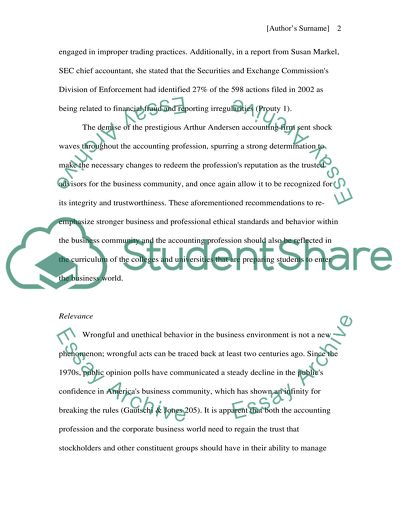Cite this document
(“Business Ethics Essay Example | Topics and Well Written Essays - 1750 words”, n.d.)
Retrieved de https://studentshare.org/history/1390488-business-ethics
Retrieved de https://studentshare.org/history/1390488-business-ethics
(Business Ethics Essay Example | Topics and Well Written Essays - 1750 Words)
https://studentshare.org/history/1390488-business-ethics.
https://studentshare.org/history/1390488-business-ethics.
“Business Ethics Essay Example | Topics and Well Written Essays - 1750 Words”, n.d. https://studentshare.org/history/1390488-business-ethics.


